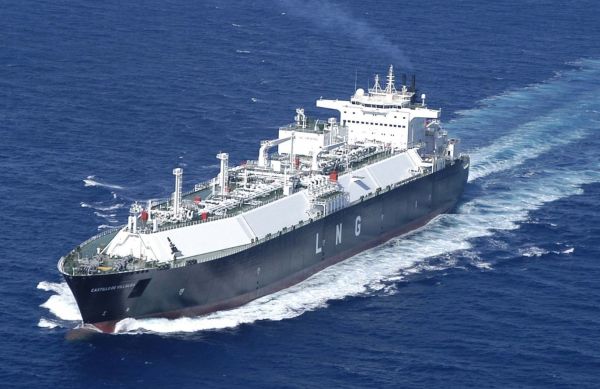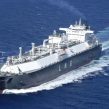
Lithuania Enlists US Companies for Gas Supply and Transportation Projects
Publication: Eurasia Daily Monitor Volume: 8 Issue: 128
By:

Attending the Lithuanian-chaired, Community of Democracies annual event in Vilnius on July 1, US Secretary of State Hillary Clinton endorsed Lithuania’s energy security strategy on its three levels: the national, regional, and European. The political endorsement accompanies specific energy projects being launched by American companies in Lithuania.
Accompanied by Richard Morningstar, special envoy for Eurasian energy affairs, Clinton appeared well briefed on the issues. She told the media that the US “strongly supports” Lithuanian plans to build a nuclear power plant as a Baltic regional project, a liquefied natural gas (LNG) terminal, and gas and electricity links between the Baltic States and the rest of the European Union, as well as to explore for unconventional gas in Lithuania. The United States acknowledges that “Lithuania has taken a leading role in promoting regional energy security cooperation [through] diversification and market liberalization initiatives,” as well as in starting to implement the EU’s Third Energy Package [of de-monopolization measures]. A joint US-Lithuanian communiqué reiterates Clinton’s remarks in Vilnius (BNS, State Department release, July 1).
Breaking Gazprom’s monopoly is a top priority of Lithuanian (and its Baltic neighbors’) policy. This would involve creating a competitive market by: 1. diversifying the suppliers; 2. diversifying the delivery mode, adding LNG to pipeline-delivered gas; 3. freeing the country’s pipeline system from Gazprom’s and its proxies’ control; 4. linking up with the transmission systems of EU countries; and 5. cutting the Russian-imposed, artificial link between the price of the oil products basket and the price of Gazprom-delivered gas.
Following a competitive tender, Lithuania has selected the US company, Fluor International, as lead adviser for construction of an LNG import terminal in the ice-free port of Klaipeda. The Lithuanian partner, Klaipedos Nafta (71 percent state-owned) announced the signing of the agreement with Fluor on July 1. Under the document, Fluor will advise on the project’s technical development and implementation, business model, navigation issues, safety measures, and permit applications, during a four-year period.
The plan envisages a floating LNG terminal, with an initial capacity of 1.5 to 2.2 million tons of liquefied gas per year, to become operational in 2014. The cost, estimated at 200 million Euros to 300 million Euros, is lower than that of a land-based terminal of comparable capacity. A pipeline link is planned to be built from the Klaipeda terminal to a nodal point of Lithuania’s gas transmission system. Lithuania will be looking for a private-sector strategic investor in the LNG terminal. With this project, Klaipedos Nafta branches out from the oil into the gas business. The company operates a modern export terminal for oil products in Klaipeda (www.oil.lt, July 1, 5; Delfi, July 1, 5).
Lithuania’s government takes the position that its project is not mutually exclusive with the larger LNG terminal that neighboring Latvia proposes to build. The Lithuanian government does not intend to compete over EU funding for an LNG terminal in the Baltic States. The larger Latvian terminal is projected to serve all three Baltic States’ requirements. Lithuania is prepared to join it as a co-investor, if the EU designates the Latvian project as a regional project and makes some funding available to it. However, Lithuania would go ahead with the Klaipeda project in any case. The Klaipeda terminal would serve primarily Lithuania’s requirements, but it can also help open the neighboring countries’ gas markets to competition from suppliers other than Gazprom (BNS, June 30, July 1).
The US company, Cheniere Energy, has been designated as possible supplier of LNG to the Klaipeda terminal. Under a memorandum of understanding signed on May 11, Klaipedos Nafta and Cheniere Energy have begun discussions on the terms of LNG purchase and supply options. Cheniere owns the large-capacity LNG terminal at Sabine Pass, Louisiana, as well as the Creole Trail pipeline in that state.
That terminal and pipeline were being used until now for importing foreign-sourced LNG, re-gasifying it and supplying it for use in the United States. The unconventional gas boom in the US, however, is turning such companies as Cheniere from LNG importers into exporters. Accordingly, the Sabine Pass terminal and inland pipeline are being reconfigured for bi-directional use, with a capacity of up to 16 million tons of LNG per year. This would enable liquefaction of US-produced unconventional gas and its export as LNG to European terminals, including that planned in Lithuania (www.cheniere.com, www.oil.lt, May 11; Delfi, July 5).




